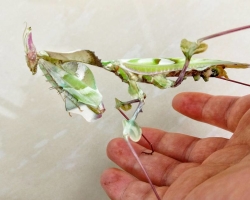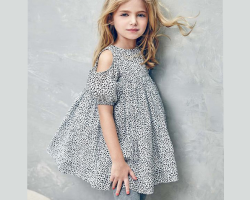This article is devoted to the topic of human relationships and models of behavior - a triangle of Carpman. You will find out what the triangle of Carpman is whether it is good or bad.
Content
- What is a triangle of Carpman: roles, goals, behavior
- Video: Carpman triangle - what is it?
- Examples of the Carpman triangle from life
- How not to get into the triangle of Carpman?
- How to get out of the triangle of Carpman, if you are a victim, persecutor, savior?
- Video: How to get out of the triangle of Carpman?
What is a triangle of Carpman: roles, goals, behavior
"All life is a game, and people in it are actors" - This expression has existed for a very long time. And, in fact, it is not at all comic. Stephen Carpman did not think so. He described the model of human relationships, which he called the triangle of Carpman.
This triangle has nothing to do with the love triangle. After all, completely different people can contain completely different people: a husband-woman, a friend-girlfriend, colleagues, relatives and even neighbors.
Moreover, there are only three roles in this triangle. But there may be many people who can be involved in a triangle.
What is it? Say right away, you could repeatedly be involved in this game, but you yourself might not know. Some people live in this triangle all their lives, and mistakenly believe that such relationships are the norm. Let's move on to the essence.
Important: Carpman triangle - This is a model of human relationships, in which there are three roles - a victim, a pursuer, a savior.
Victim -A person who is always dissatisfied with life constantly complains about life, accuses others of his failures, blames others with something. The victim does not consider himself not guilty of anything, I am sure that everyone enjoys his kindness, innocence, helplessness, softness (emphasize the right one). Everything is always bad for the victim, she constantly becomes an object of attacks from other people. The victim is always offended.
Pursuer - The person who attacks the victim. He is aggressive and angry around the world. The pursuer is sure that only he knows how best to do and how to do it right. There are two points of view for the pursuer: it is wrong. He tells the victim that she is to blame for everything. The pursuer has vital energy at zero, he is tense, cannot forget about the mistakes of the past, does not forgive others with their mistakes.
Savior - A person who considers his duty to certainly save the victim from an aggressive and cruel pursuer. To the victim, the Savior feels pity, and anger for the pursuer. At the same time, he considers himself a cut above the rest of the triangle and revels in his significance.
Important: each participant in the triangle receives his own benefit from this relationship. Having received their benefits, participants can change their roles.

Consider what the purpose of each of the participants in the triangle Carpman:
- Victim He does not want to take responsibility for his life, is not confident in himself and his abilities, disappointed in life, and is often inactive. She finds a way out of this situation in allowing others to solve their problems. At the same time, she is looking for the Savior, on whom she wants to take the load of her problems.
- Pursuer Under the mask of constant dominance, rule, reading morality, oppression, he tries to prove his significance, to assert himself. Such people in childhood were often influenced by abusers. The pursuers often experience a sense of worthlessness that they try to suppress by suppressing the victim. At the same time, the pursuer does not consider himself guilty, as he believes that the victim deserves this.
- Savior In fact, no one saves, his actions are just an illusion. The Savior simply wants to become for himself and for others "a good boy/girl." Often no one asks him for help, he himself imposes his help, which in fact has nothing to do with real help. Outwardly, the Savior is trying to help the victim, but in fact, he does everything to make the situation drag out. Since this story is beneficial to him, because he refers to his significance.
As soon as the purpose of anyone from this triangle has been achieved, the behavior of the characters changes and the roles change occurs:
- Having found his savior, the victim herself becomes a persecutor;
- Having not received gratitude for his help, the Savior begins to play the role of the victim;
- Having humiliated his victim, the pursuer occupies the role: "I just wanted to help (the Savior), and you attacked me (victim)."
Video: Carpman triangle - what is it?
Examples of the Carpman triangle from life
There are a lot of situations in life when people are involved in the triangle of Carpman. Consider them.
Situation 1: case of two friends
Tatyana came home after work, completely tired. Having completed her affairs, she went to bed. But then there was a phone call. It turns out that her friend Svetlana convicted her husband in treason, she sobs, complains and asks for support. Tatyana begins to regret her unfortunate girlfriend. Naturally, she experiences anger for her husband-change. There was a triangle in which the first girlfriend - the Savior, the unfortunate crying girlfriend is a victim, and her husband is a pursuer, an aggressor.
When Svetlana cried all the tears, she transferred her grievances to the shoulders of the first friend, that is, she received her benefit. Then Tatyana's exhortations to calm down, Svetlana was offended and hung up. Now the roles have changed. Tatyana began to think that she did not enter the role of the victim, and Svetlana became a persecutor.

Situation 2: husband, wife, lover
The wife constantly saws her husband, who is very tired of this. The husband feels like a victim, the wife in this case is a pursuer. Due to the eternal discontent of the wife, the husband finds his comfort in the arms of his mistress, who becomes a savior for her husband. For a while, the situation settled. But then the wife found out about the presence of a mistress. Now the wife becomes a victim, and the pursuer is a lover.
When the spouses decided to establish their relationship, the husband becomes a savior for the victim. But for his mistress, he becomes a persecutor, since in the incident it begins to blame the mistress who goes into the role of the victim.

Situation 3: Relations in the family throughout life
Important: the roles in the triangle of Carpman can change several times a day or for many years.
Consider the situation in which the family has been in the Karpman triangle for many years.
Father strictly raises his son, he constantly criticizes him, reads notations, and forbids a lot. Mother is sorry for the child, she tries to calm him, regret, support, especially when her father is not nearby. The triangle is clear: the father is a pursuer, son is a victim, mother is a savior.
When the son grew up, he experiences anger to his father. He throws his parents and leaves away from the house. Mother accuses all father, she becomes a persecutor, her father becomes a victim.
The son sees that the relationship in the family is heated. He accepts one of the sides of his parents, becomes the deliverer. But quarrels and scandals in the family do not stop. Then the son accuses the mother of everything, and the father begins to protect her from the already adult son. Thus, now the mother is a victim, the pursuer is a son, and the Savior is a father.

Situation 4: Naughty child
As already mentioned, entire groups of people can participate in the triangle. An example is the following situation.
Boy Vova behaves well, he does not react at all to the remarks of his parents. His parents talk about the situation to their neighbors - the parents of the obedient Dasha. Dashenka's parents advise the parents of Vova to punish the Born. Classic triangle of Carpman:
- Vova is a pursuer;
- His parents are victims;
- Dasha’s parents are saviors.
After punishment by a belt, Vova runs away from home to her grandmother, who lives nearby and does not want to return home. Vova’s parents tell with indignation all friends about what villains their neighbors, who advised to flog the boy. Now the situation is different, and the roles in the triangle have changed.

How not to get into the triangle of Carpman?
Relations in the triangle of Carpman are unhealthy. Here all pure water manipulation, game, illusion. Everyone gets only their own benefit.
Important: a person who wants love, understanding, support, friendship, does not have a place in the triangle of Carpman. If you are trying to involve you there, do not allow this.
Whatever the role is prepared for you in this triangle, or whatever the role attracts you, run. After all carpman triangle - This is a crazy house, the communication of people of co -dependent, walking in a circle, aimless existence.
Those who live in the triangle of Carpman do not want to admit to themselves that you can live without suffering, without anger, but calmly and with joy.
If you want to leave the triangle of Carpman, there is good news:
- You can always get out of it, no matter what the role you have.
- If the triangle of Carpman has settled in the family, the desire to leave one of the members can lead to the desire of the rest of the members to get out of their roles and start a normal life.
- Even if the participants in the triangle do not want to part with their roles unlike you, they will be forced to adapt to you and behave more adequately. Why? Because the participants of the triangle are immature personality, and a person who does not accept the rules of this game is mature. An immature individuals are forced to adapt to the norms of personality behavior mature.
Almost a way out of the triangle of Carpman can be carried out as follows:
- Learn to refuse directly. A aching girlfriend should say: “Listen, I have no right to intervene in your life. Decide for yourself what to do in this situation, I can only sympathize with you. ” Thus, you make it clear to the person that you do not intend to solve its problems. Probably, a friend will look for a new savior. In the case of a boy of Vova, Dasha’s parents should not react to complaints of Vova’s parents. It was enough to say that raising a child is a matter of parents only, and that they cannot help.
- Help not with advice, but energy. If close relations with a friend do not allow her to spoil her relationship with a direct refusal, support her energy. In response to her tears, answer cheerfully: “Well, what are you crying like a little girl! Come on, cheer up, you yourself know how to solve your problem. You will succeed! ” In this case, you are insure of yourself from the role of the victim, now your girlfriend will not blame you for wrong tips. Thus support your girlfriend.
- Transfer the arrows. If you do not want to become a participant in the triangle, learn to skillfully translate the arrows into the person who professionally deals with this problem: “Problems in the relationship? You know, I have contacts of an excellent psychologist. She went to him, so helped. Here is a telephone, write yourself! ”
- Indirect advice. For example: “Oh, one friend of my girlfriend rolled such a scandal to the guy that he became like silk: he began to appreciate, respect, treat her as a crystal vase. But be careful, from another friend the guy left after that! " That is, you do not take responsibility for the final decision. Let the victim herself decide what to do in the end. For you: Wolves are full and sheep are intact.
Important: do not forget that not all relations in this world are subject to the triangle of Carpman. It is possible that a person simply asks for your advice, because he needs an opinion from the outside, needs additional information.
An attentive attitude to the world and others will help you figure out whether they are trying to hang their problems on your shoulders or just want to do not binding advice.

How to get out of the triangle of Carpman, if you are a victim, persecutor, savior?
Everyone can help himself. You can leave the triangle of Carpman, from the role of the victim, the pursuer and the Savior, if you yourself want it. To do this, you need to work out your installations.
How to get out of the role of the victim:
- Do not whine and do not complain about life. Get rid of the habit of looking for guilty around you. Realize that you are shifting responsibility for your life to other people's shoulders. Learn to be responsible for yourself and your life.
- Do not forget the simple rule: no one owes you anything. Even if they promised, they offered, they wanted. The circumstances are changing. Today they wanted, tomorrow plans have changed. Come on only yourself.
- If you are not satisfied with the situation, you have the right not to adapt to it, Even if later you find yourself bad in someone's eyes.
- Get rid of the habit of brewing yourself forever, pity and make excuses. You have every right not to correspond to someone else's expectations.
How to get out of the role of the pursuer:
- Accept the fact that people are not required to meet your requirements.
- Other people are not to blame for your problems and failures, realize this.
- Self assertion due to weaker people low. Use this as a life axiom.
- Disagreements are solved more effective and pleasant without malice and aggression.
How to get out of the role of the Savior:
- Do not think that you know how best to live this or to that person. Without your valuable instructions, the world will not collapse. Silence if you are not asking for advice.
- Stop pitying independent adults, their life is their choice.
- Help only those who ask for this and really need. Help should be targeted, justified and real.
- Do not expect gratitude, praise, do not demand this from other people. You are helping just like that, disinterestedly?
Getting rid of the role in the triangle of Carpman, you will have more time to improve the quality of your life, life itself will become more interesting, you will understand how it has become easy to breathe without exhausting manipulations.







